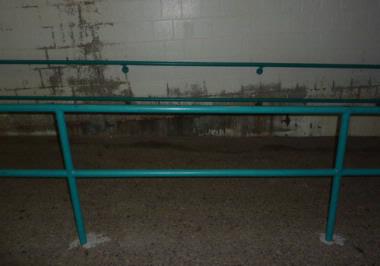Forty years ago, Springfield’s German Gerena Elementary School was built in an old industrial area in the city’s North End, and constructed below the water table. Neighbors and at least one city councilor protested about the school’s siting on low ground, with the tunnel that leads into the school from Main Street situated below Rte. 91, busy Birnie Avenue running by the building, and the railroad track running above the eastern part of the school, but their cautions went unheeded.
The result for four decades has been unsafe and unhealthy. Water permeates the building, staining walls, standing in the tunnel, covering fixtures and equipment with rust and mold and causing them to age before their time. Pumps must run 24 hours a day, seven days a week. At times, people with asthma, including adults, have been unable to stay in the building without becoming ill.
Air quality in the school is significantly better now than it was a few years ago, but many in the neighborhood and beyond—including the Pioneer Valley Asthma Coalition—have joined forces to make Gerena a healthier place for students, teachers and local residents who use space at the school for meetings and activities. Partly due to that community concern, the federal Environmental Protection Agency is studying the situation and preparing to make recommendations that will, in the words of EPA State Assistance Programs coordinator George Frantz, help the city get “the most bang for the buck” as it seeks grants for repair and improvement projects.
The EPA is conducting a Health Impact Assessment and seeking information from local people about health problems at Gerena. EPA representatives Frantz and Marybeth Smuts, the agency’s air toxicologist for the New England region, will hold a workshop at the school at 6:15 on October 17 to get feedback about what the school needs to become a healthier environment. This will not be a meeting in which speakers are restricted as to subject matter; everyone is invited to come and discuss “thoughts and concerns” about renovations to the school, and the process will be accessible to people who speak Spanish only.



